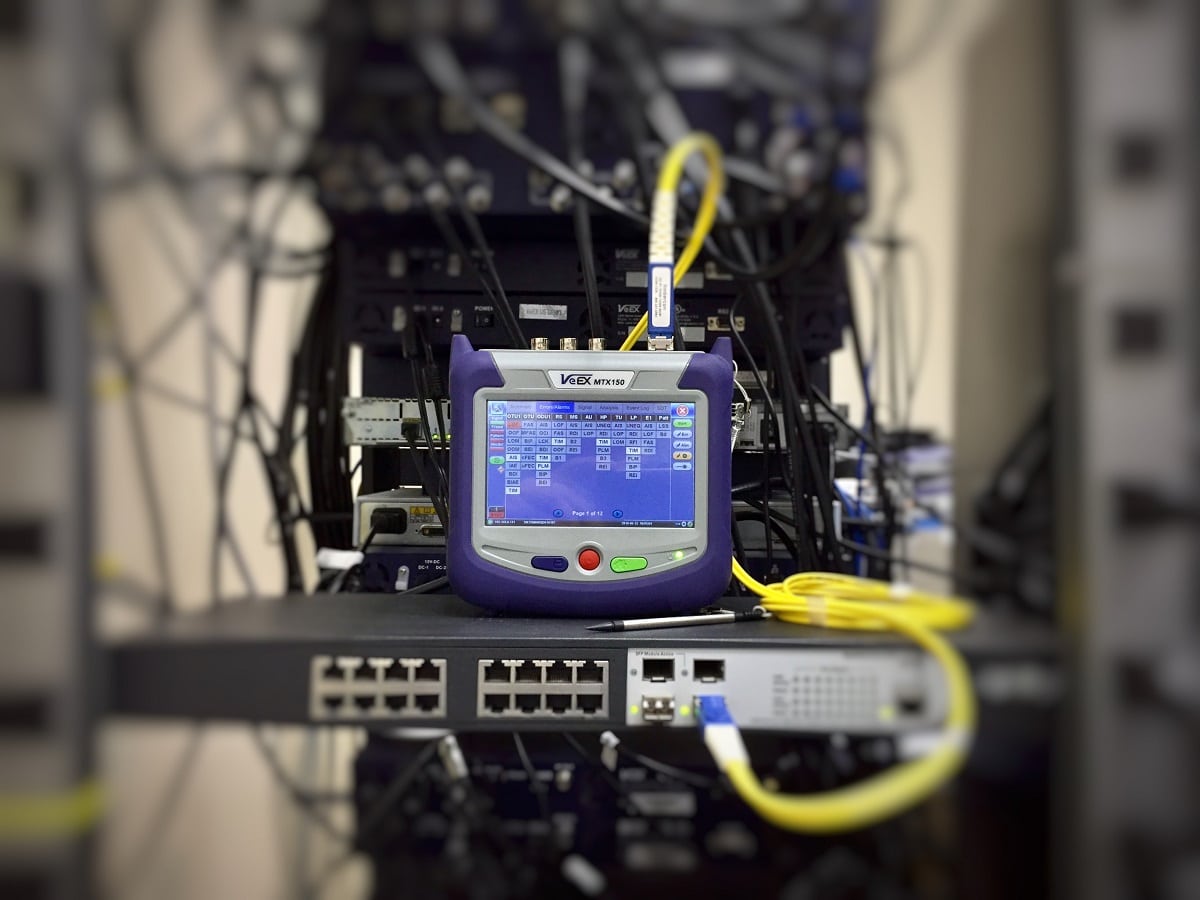
Is Telecommunications Equipment a Good Career Path: An Outlook
The ability to communicate with other people is essential in this day and age. Whether you are calling your job or sending a text message to a friend, or having a video chat with family miles away, it is vital that we are able to be connected.
Now more than ever, there are so many ways for people all over the globe to be able to talk to each other, share their lives, and interact in ways that simply were not possible before. That is mostly due to the telecommunications industry.
For generations now, telecommunications has mostly revolved around people talking on the phone and hearing someone but not seeing them. But over the last several decades, that has changed in some major and stunning ways.
Because of that, telecommunications have evolved, and the entire industry offers so much more to paying customers. But it also offers so many more job opportunities to people willing to pursue them. And that is why a job in telecommunications is so promising.
But a job in telecommunications equipment is even more exciting because their entire industry would come to a standstill if it weren’t for the communication equipment that runs it.
What can you expect when you start a job in telecommunications equipment and what will it bring you, provide you with, and how can it make your life both exciting and profitable at the same time?
Table of Contents
What Are The Best Telecommunications Equipment Jobs?
There are many jobs to choose from when you are working in the telecommunications equipment industry. The tough decision is choosing which one is right for you. That will all depend on what you want to do, if you have the right skills and experience, what sort of education you have experienced, and what company you are setting up to work with.
But here are just a few jobs that you should keep an eye on when you are getting into telecommunications equipment jobs.
Broadband Engineer
A telecommunications network cannot run without a broadband engineer. They are tasked with the hard work of installing, overseeing, and maintaining the equipment that runs a network.
There is a lot of hard work that goes into this job. You must be good at analyzing data and making sure that systems are functioning properly. Obviously, you would want to have some pretty extensive experience with computers and networks before you take on a job like this.
Traditionally, you would need a bachelor’s degree in telecommunications, engineering, or some other field closely related to it if you want this job. And if you want to get this job, you will certainly need to have some sort of experience in the field and industry.
As for the annual salary for this position, it varies from business to business.
Data Scientist
Here is a high-paying job that will always be in demand from telecommunication companies.
A data scientist is needed by telecommunications companies because they analyze the information that comes in from the network and the customer base that keeps the company busy.
By doing this and extrapolating, they are able to project how the network needs to be changed, future business plans, and other pressing issues for their company.
This is a very lucrative job and can pay north of $100,000 a year. However, the demands for this position are high, and you will have to be very good at reading information and data and analyzing it all.
Telecommunication companies are now holding warehouses full of servers and data. This means that this job will keep you busy for a very long time, and you will always have work to tackle.
Telecommunications Engineer
Running a telecommunications network isn’t as simple as just setting up the equipment and letting it run. While that might work well for a house or apartment, there are many businesses that need a plan and a certain strategy to help things run smoothly.
A telecommunications engineer has the hard work of designing, maintaining, and analyzing communication systems. They will make deliberate and special decisions related to the size and configuration of a network as well as the equipment that will be needed.
This is a job that requires a lot of education and experience with complex technology and the inner workings of the machines and equipment that run a system. You would need to have a degree in telecommunications and experience in the field as well.
Traditionally, this job can pay you about $85,000 a year.
Call Center Representative
A telecommunication company has many jobs. While there are engineers who are out in the field, setting up and maintaining the network, there are also people who work on the front lines and interact with the customers on a daily basis.
A call center rep is the person who picks up the phone and communicates directly with the customers. They might be solving problems, connecting calls to certain employees, setting up appointments, or more.
You will need strong and reliable customer service skills but will also need to know a lot about your company and how it works and should also be able to stay calm under pressure and a lot of work. No matter how busy things are, you will need to stay friendly and keep a level head.
A job like this won’t pay as much as others, but you can still make close to $30,000 a year and will work closely with a team.
Discover how to get a job as a call center representative.
Civil Construction
A telecommunications network often needs plenty of space to run well. There is a lot of equipment that needs to be installed in certain parts of the city, and a civil construction expert will handle that.
They work on behalf of the telecommunications company and ensure that the construction process and the installation of equipment go smoothly. From construction to laying concrete and excavation, a civil construction employee has to do a lot of hard and physical work.
Installer
There are several different types of installers who work for telecommunications companies. There are people who will install satellite dishes, others who install networks in businesses, and others who go to customers’ homes and set up their modems, routers, and at-home networks.
This is a job that typically pays at least $30,000 a year. It is a position that will have you interact a lot with customers face to face. You will enter their homes and try to do your job as quickly, quietly, and politely as possible.
Why Choose A Job In Telecommunications Equipment?
As you can see, there are many positions with various pay rates that you can pursue if you want to work in the telecommunications equipment industry.
But why would you want to do that? What is it that should attract you to this field and convince you to apply? There are multiple reasons why you should think about joining this growing and exciting field.
Job Security
Job security is something that everyone wants when they take on a new position, but it’s not guaranteed in many places. But it is most definitely guaranteed in the telecommunications equipment field.
That is because telecommunications are always needed for a number of reasons. It goes beyond the fact that people like to phone their friends and family and stay close to them.
Businesses and entire industries rely on telecommunications. And these companies need to ensure that their networks are always performing well, enhanced, and kept in the best shape.
Therefore, people working in telecommunications equipment will always have their work cut out for them and will always have something to do. That is why they have such job security.
There are millions of people who are looking for a job that will be around for a long time as long as they perform well. That is what you get with a position in telecommunications equipment. You don’t have to worry about the industry closing up and fading away. It will be around forever.
Career Growth
The great news about working in the telecommunications equipment field is that there is always room to grow. You might start as someone who picks up the phone and schedules appointments with customers, but you could someday be out in the field, installing networks, if you are able to get the proper education and the right experience.
There are many ways to climb up the ladder and do more in this industry. You don’t have to be stuck in one position forever. There are numerous people who start in one spot within a company, work hard, prove themselves, and eventually do so much more. The sky’s the limit.
A Bright Future
If you look back at the telecommunications field just ten years, you see an industry that has radically changed in a short amount of time. What used to just consist of phones used to make calls now features devices that stream movies, video chat with people, and run entire businesses.
A lot has changed in the telecommunications equipment field, and a lot more is set to change in the future. Within the next few years, you can expect to see the devices we use in business and at home revolutionize, evolve, and do so much more for us.
Those working in the telecommunications field will be at the center of it all.
What Education Do You Need?
Many people wonder what sort of educational requirements they must meet to get a job in the telecommunications equipment field. That all depends on the sort of job you are looking to do.
It is very likely that even if you are looking to start in an entry-level job, like a call center representative, you will need a high school diploma or GED. All of the training will be given to you for free by the company you work for.
Other jobs will demand a lot more. If you are installing networks, you may need a telecommunications degree, but if you are a data analyst, you certainly will. This changes based on the company that you are employed by.
If you are working as something like a data architect or in an executive position, you will need to have a master’s or doctorate degree. But you should know that with this level of job, you also get a level of pay that is unparalleled.
Conclusion
Telecommunications equipment makes the world function as it should. Now someone in Tokyo is able to have a long chat with someone in San Francisco, all thanks to telecommunications.
In order for the modern world to talk and communicate as it should, the equipment that runs it all needs to work efficiently. That is why the telecommunications equipment field is so enticing and provides millions of hard workers a chance to make a lot of money and quite literally change the world.
Sarah is an accomplished educator, researcher and author in the field of testing and assessment. She has worked with various educational institutions and organisations to develop innovative evaluation methods and enhance student learning. Sarah has published numerous articles and books on assessment and learning. Her passion for promoting equity and fairness in the education system fuels her commitment to sharing insights and best practices with educators and policymakers around the world.








